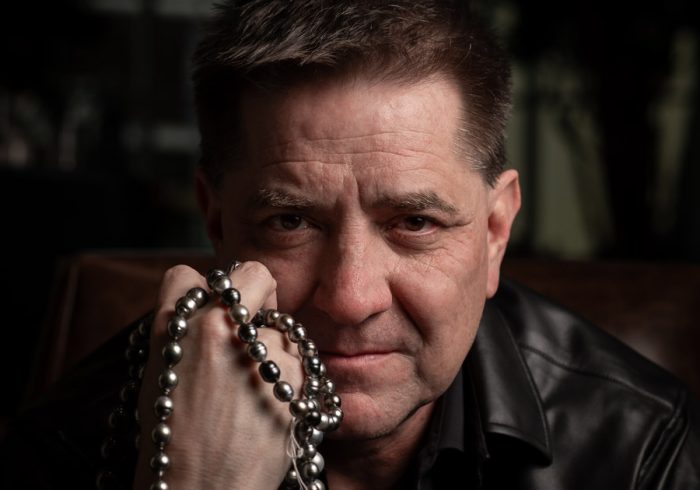
“Ghosting is merciless as a result of it denies an individual the prospect to course of, to ask questions, or to get closure. It’s emotional abandonment, masquerading as safety.” ~Dr. Jennice Vilhauer
I by no means got down to ghost anybody.
In reality, I used to hate ghosting with the burning fury of a thousand unread relationship app notifications. I advised myself I’d by no means be that individual—the one who disappears mid-conversation, fails to answer after a very good date (or sends a really bland thanks message), or silently vanishes like a breadcrumb path to nowhere.
And but… right here I’m. Writing a submit about how I’ve ghosted individuals.
Not as a result of I’m happy with it. Not as a result of I feel it’s defensible. However as a result of I’ve come to know why I’ve executed it—and what that claims about relationship tradition, emotional patterns, and my very own very human flaws.
So, when you’ve ever been ghosted and questioned what was going by means of the opposite individual’s head—or when you’ve ghosted and don’t fairly perceive your individual conduct—that is for you.
As a result of behind each silence is a narrative.
A Sample Primed by the Previous
Let’s begin with this: I didn’t start my relationship journey with cynicism. I began like many individuals— hopeful, curious, wide-eyed.
However after a number of rounds of being ghosted myself, misled, or strung alongside by individuals who mentioned all the appropriate issues however meant none of them, my hope started to erode. Slowly, subtly, like a stone smoothed down by fixed friction.
Over time, the sample regarded like this:
- Match with somebody promising.
- Change humorous, considerate messages.
- Possibly go on a date or two.
- Then, all of the sudden… nothing. Silence. A flatline.
It wasn’t at all times dramatic. Typically the conversations simply light. Different occasions, it was abrupt. I’d be mid-conversation and—growth—gone. No clarification, no closure. Simply one other digital ghost within the machine.
And whereas I knew intellectually that this was “a part of on-line relationship,” it nonetheless landed. It primed me to anticipate disappointment. To strategy every new match not with optimism, however with quiet dread.
Finally, I began pondering:
What’s the purpose? They’ll in all probability flake anyway.
Ghosting as a Protection Mechanism
So, the place does my ghosting are available in?
At first, it was refined. Possibly I’d take a little bit longer to answer. Or I’d go silent on somebody who appeared good however who I didn’t really feel an instantaneous spark with.
I’d inform myself:
- “I don’t owe them something.”
- “They in all probability don’t care.”
- “It’s higher to fade than pressure it.”
However the reality is, my ghosting wasn’t about them. It was about me.
It was a mirrored image of my worry of disappointing somebody, my lack of emotional bandwidth to elucidate myself, and my protecting intuition kicking in after I sensed one thing acquainted—and never in a great way.
I had been ghosted so many occasions that I started to preemptively disengage earlier than anybody might do it to me.
In case you depart first, not less than you’re not the one being left.
It’s a defective logic, however if you’ve been conditioned by repeated adverse experiences, you begin to default to safety over connection. And ghosting—silent and sudden—is the last word type of emotional self-preservation.
Cynicism within the Profile Scroll
On-line relationship is sort of a psychological rollercoaster of judgments, hope, disappointment, and the occasional serotonin spike when somebody has a canine and is aware of tips on how to use punctuation.
However over time, I observed one thing about how I used to be participating with profiles:
I wasn’t curious—I used to be crucial. I wasn’t open—I used to be braced for disappointment. I’d learn bios on the lookout for causes to notinteract, fairly than to attach.
Someplace alongside the road, relationship apps stopped being thrilling and began feeling like a parade of micro-rejections—even after I was the one doing the rejecting.
I grew to become a relationship cynic in a world that rewards detachment. I checked out profiles and thought:
“This man in all probability lives together with his ex and/or is married.”
“He appears to be like like a participant and lacks authenticity—regardless that I used to be happening little or no proof.”
“He’ll undoubtedly inform me he’s ‘not on the lookout for something severe’ however nonetheless need consideration and the accompanying ego increase.”
And even when somebody appeared genuinely variety, I’d suppose: What’s the catch?
That mindset doesn’t simply harm others. It corrodes your skill to be current, weak, or honest.
Ghosting as Avoidance, Not Malice
Right here’s what I’ve realized by means of self-reflection and some too many crimson wines whereas watching reruns of “Love at First Sight”: ghosting isn’t about cruelty. It’s about avoidance.
Ghosting feels simpler than:
- Crafting a rejection message
- Sitting within the discomfort of another person’s disappointment
- Risking an ungainly reply, or worse, an argument
It’s fast. It’s clear. It’s additionally emotionally lazy.
However when your emotional reserves are working low—particularly from repeated rejection, indifference, or burnout—ghosting can really feel like the one viable exit technique.
That doesn’t make it proper. However it makes it comprehensible.
And infrequently, individuals ghost not as a result of they don’t care however as a result of they’re overwhelmed by the potential for caring and never realizing what to do with it.
The Cycle of Ghosting
When ghosting turns into the norm, all of us lose. It creates a tradition the place:
- We dehumanize the individuals we discuss to.
- We second-guess our self-worth.
- We grow to be afraid of emotional publicity.
- We settle into half-hearted connections as a result of we don’t anticipate actual ones to final.
It breeds mutual mistrust, and that, sarcastically, makes ghosting extra seemingly.
I began to see it like a self-perpetuating loop:
Get ghosted → grow to be jaded → ghost others → deepen the tradition of avoidance.
And but, I additionally realized one thing else: If I wished to interrupt the loop, somebody needed to go first.
What I’ve Discovered (That May Assist You Too)
Right here’s what’s shifted for me over time:
1. Avoidance doesn’t spare emotions. It simply delays discomfort.
Telling somebody you’re not feeling a connection is awkward. However not telling them leaves them confused, perhaps even harm. And it leaves you carrying emotional litter.
2. Emotional boundaries will not be the identical as emotional withdrawal.
It’s okay to not proceed a dialog. It’s okay to finish issues after a date. However doing so with readability and kindness (even a single line) is way extra respectful than silence.
3. Ghosting devalues human connection, even in small methods.
While you ghost somebody, you’re subtly reinforcing the concept individuals are disposable. And in doing so, you chip away at your individual sense of connection.
4. Cynicism protects, but it surely additionally prevents.
Anticipating the worst generally is a defend, but it surely additionally blocks the great. Staying open, curious, and sort—even after heartbreak—is the bravest factor you are able to do.
What I Attempt to Do Now
Nowadays, I strategy on-line relationship in another way. Not completely. However extra deliberately.
If I’m not , I’ll say one thing like:
“Thanks for the chat. I don’t suppose this can be a match, however I want you effectively!”
Easy. Variety. Closure. Performed.
And if I’m feeling overwhelmed and don’t have the bandwidth to attach, I pause. I take a break. I don’t maintain conversations going only for the dopamine or out of obligation.
As a result of being sincere and respectful, even on-line, feels quite a bit higher than the lingering guilt of one other message left unanswered.
Ultimate Ideas: Honesty and Authenticity Over Evasion, All the time
Ghosting could also be frequent, but it surely’s not benign. And whereas I’ve executed it (greater than as soon as), I’ve additionally realized that it’s typically a mirrored image of inside burnout, worry, or cynicism—not cruelty.
However we are able to do higher. We are able to date higher.
Not by being excellent, however by being conscious. By selecting readability over consolation. By remembering that each profile we swipe on is an actual individual with hopes, fears, and a coronary heart that deserves kindness. Finally, we’re on the lookout for love, appreciation and a way of connection.
So, to everybody I’ve ghosted, I’m sorry. Not only for the silence, however for assuming you wouldn’t care. For utilizing detachment as safety. For forgetting the humanity behind the display.
And to anybody combating the messy world of on-line relationship: you’re not alone. And also you’re not damaged. You’re simply looking for one thing actual in a world that always rewards pretending and exterior validation.
Preserve displaying up. Preserve being sincere. Preserve being you.
Even when it’s awkward.
Even when it’s scary.
Particularly then.
About Mandy Kloppers
Mandy is a cognitive-behavioral therapist who affords counseling to shoppers worldwide by way of Zoom. She believes in spreading kindness: “Being a therapist doesn’t imply that life is ideal—we’re all in ‘this soup’ collectively” because the psychologist Carl Jung famously as soon as mentioned. She additionally writes a each day psychological well being weblog that includes recommendation and data on anxiousness, despair, psychological well being, private growth, and relationships. If you need counseling, contact her by way of her web site: www.thoughtsonlifeandlove.com



